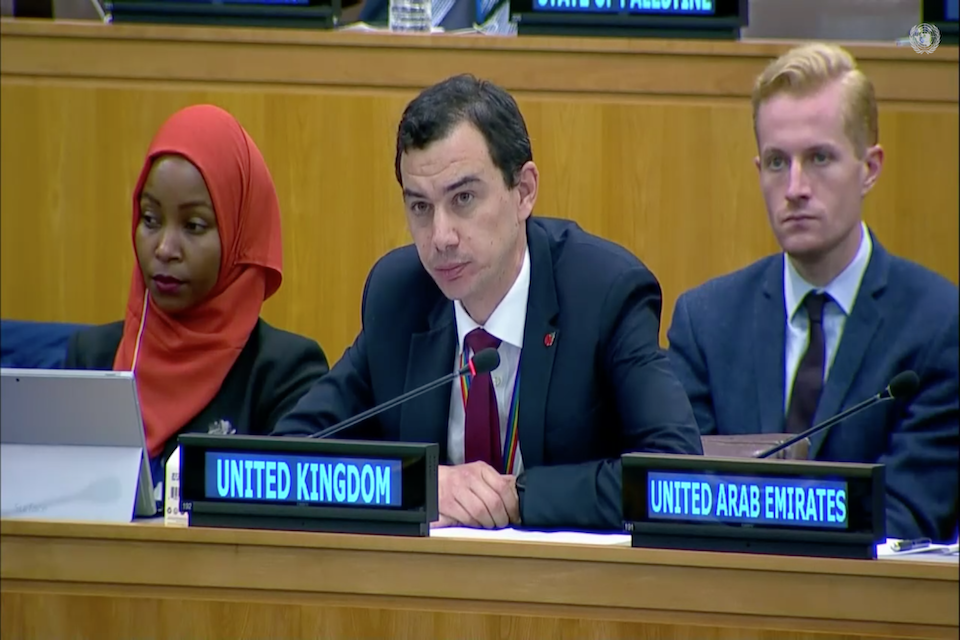For people in Crimea, the story of untold suffering began eight years ago: UK statement at UN
Statement delivered at the UN Third Committee adoption of a resolution on human rights in Crimea

Thank you Mr. Chair.
The United Kingdom reiterates its support for this resolution and welcomes the significant number of co-sponsoring states.
This year, we have looked on in horror as Putin launched his unprovoked, illegal war, bringing untold suffering to the innocent people of Ukraine. But we are acutely aware that for people in Crimea, this story began eight years ago, in 2014.
Since then, they have endured a brutal and systematic campaign of human rights violations and abuses at the hands of the Russian authorities: arbitrary arrests and detentions, torture, and unjustifiable restrictions on the fundamental freedoms of movement, expression and religion or belief. Many of these measures have been disproportionately targeted at ethnic and religious minorities, in particular Crimean Tatars.
Since Russia’s invasion this February, the human rights situation in Crimea has only further deteriorated. This resolution highlights that Crimea has become both a base from which to launch attacks on the rest of Ukraine, and a blueprint for further Russian human rights abuses in Ukrainian territory. We condemn the conscription and mobilisation of Ukrainian civilians in Crimea into Russia’s Armed forces, and the forced imposition of Russian legislation further limiting freedom of expression, including the freedom to speak out against Russia’s brutal war.
And we regret that – despite this Committee’s repeated requests – Russia continues to deny access for international monitoring missions to Crimea and other regions of Ukraine under its temporary control.
Russia will undoubtedly accuse us of politicising this Committee. But the UK strongly defends the use of country-specific resolutions, which complement the work of the Human Rights Council and other fora in providing scrutiny of adherence to human rights obligations.
Indeed, on 4 November this year, this Committee adopted a resolution that noted with alarm that Russia has sought to justify its territorial aggression against Ukraine on the purported basis of eliminating neo-Nazism.
By failing to make even the weakest case against this language, Russia tacitly acknowledged what we all know: It has no justification for its aggression against Ukraine
Adoption of this resolution today will underline the international community’s support for Ukraine in their fight against that aggression, and their resolve to maintain pressure on Russia to bring an end to its systematic abuse of human rights in Ukraine.
Thank you.